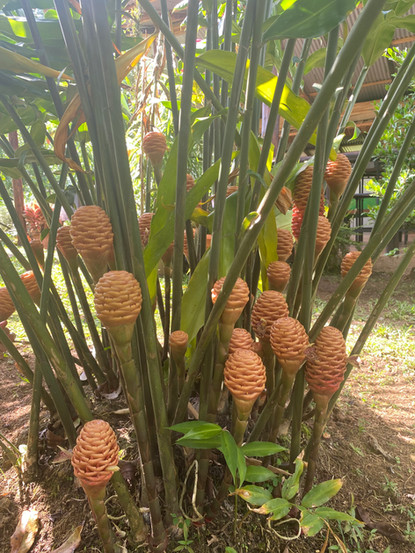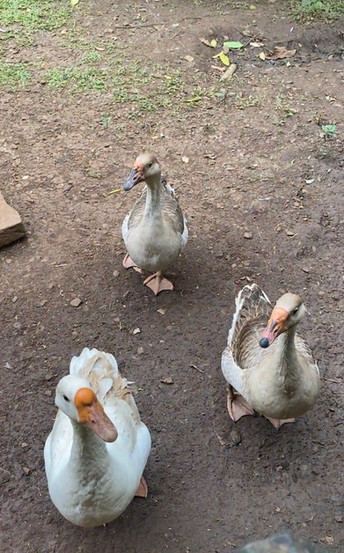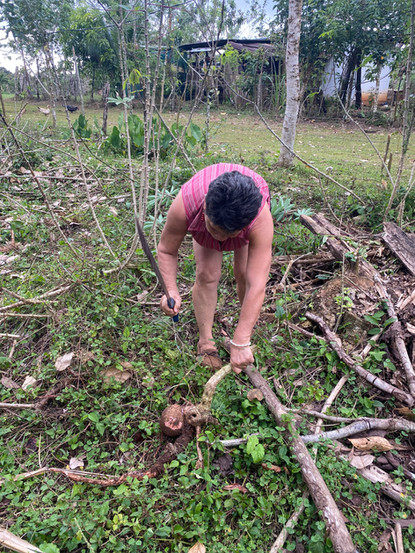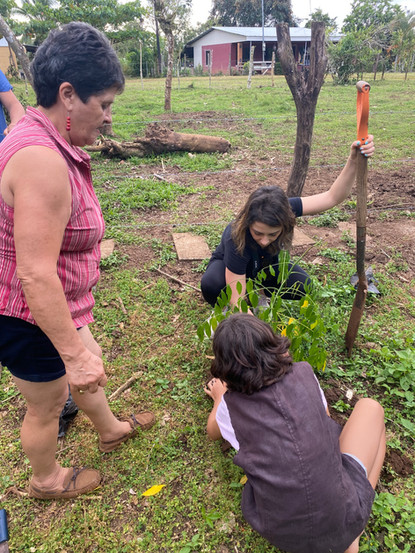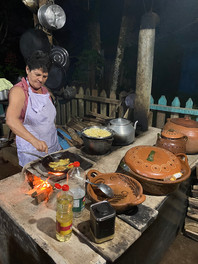My Unforgettable Homestay Experience in Costa Rica's Juanilama Agricultural Community
- Alli Iacullo
- Aug 21, 2023
- 5 min read
This past March, I traveled to Costa Rica on a small group tour with Intrepid Travel. I’d been to Costa Rica once before on a yoga retreat in 2014, but that trip was focused on yoga and wellness and didn’t cover some of the major highlights of Costa Rica. So this time around I chose a small group tour that covered everything from hiking Arenal Volcano in La Fortuna to ziplining and exploring the cloud forest in Monteverde to spotting monkeys and sloths in Manuel Antonio National Park. As exciting as it was to see and do all of that stuff, the most memorable experience wasn’t one of the typical tourist activities, but rather our homestay experience in Juanilama.
Juanilama Agricultural Community
On day two of the trip, we traveled to a small village that was the furthest thing from the tourist spots that we’d visit for the remainder of the trip. Located about a few hours from San Jose is the agricultural community of Juanilama in Santa Rosa de Pocosol. The community runs a rural tourism initiative that was started by a group of women in the community. Not only does the initiative allow them to give travelers a glimpse into their life and to learn about the local traditions, but it also gives the women who run the initiative a sense of independence and entrepreneurialism.
These women were there to greet us when we arrived at Juanilama, introducing themselves and each explaining their expertise of the village. Then one of the women guided us on a farm tour, introducing us to the different plants, fruits and vegetables that they grow there. As a community that has traditionally made their living from the land through agriculture and dairy farming, you could truly feel their appreciation for the land which seems to get lost in our modern day society.
After the tour, we sat down to enjoy some homemade snacks that some other women of the village were preparing while we were doing our farm tour. Then it was time for our group of 11 to split up into smaller groups and make our way with our hosts to their respective homes which would be our homes for the night.
Giselle’s Home
Two other girls from my group and I hopped in a car with our host, Giselle,
and within a few minutes drive on a bumpy dirt road, we pulled up to her property which had a few humble dwellings including the one we’d be staying in that had 3 beds and a bathroom and her home which had a very large outdoor covered kitchen area. Giselle’s expertise was cooking so she had the largest kitchen and dining area and often led cooking classes for groups of tourists.
We made ourselves comfy in our space and had some downtime before preparing dinner so Giselle and her 12 year old granddaughter walked us around their property showing us the specific fruits, vegetables and herbs that grow on their land and, as we walked, we picked some items which we’d be using for our home-cooked dinner later. It was quite noisy during this tour and we were forced to talk over the sounds of the chickens, ducks and sheep that were all roaming the property.
After we toured the land, they put us to work and had us help them plant trees which were gifts the granddaughter had received from her aunt. There were three trees which worked out well since it was me and two of my group mates so we each were able to dig a hole, plant a tree and pass off the shovel to the next person.
The work didn’t stop there as now it was time to prepare dinner which was a family affair with Giselle’s daughters joining in as well. Giselle instructed us in Spanish what we needed to chop, cut and dice to prepare the meal she had planned for us and we got to cooking over an actual fire stove with our main task being frying the yucca patties. Giselle made cooking a lively experience, singing along to the music that was playing and stopping to dance during downtime. It was so heartwarming to see her in her element and just enjoying the moment.
Once the food was ready, we sat down as a family to enjoy it. We learned about Giselle’s life in Juanilama and how she ended up there. We bonded over failed relationships and being strong independent women. We laughed and joked with her granddaughter and learned how she splits her time between city life in San Jose and rural life in Santa Rosa de Pocosol. Unfortunately, I couldn’t partake too much in the conversation because Giselle and her family spoke very little English, but luckily the other two girls I was paired with from my group spoke and understood Spanish so they were nice enough to translate for me.
The hours passed as we chatted away and eventually the girls and I made our way to our room. I went to bed that night underneath a mosquito net hoping that I wouldn’t get eaten alive, but feeling so lucky to have had such a unique homestay experience. In the morning, we enjoyed breakfast with Giselle and her granddaughter before we were reunited with our group to continue on to the tourist sites.
Heartfelt Homestay
When we reunited with our group, the mood on that sprinter van that morning was one of heartfelt appreciation. Although we’d all had slightly different experiences, we all walked away from it feeling grateful to the locals for letting us into their homes, giving us the opportunity to learn about their lives and their families and sharing their love for the land as well as their beloved Costa Rica.
A lot of the small group tours I’ve done include a homestay experience, but even if traveling solo, I highly encourage seeking out these types of experiences. It doesn’t even always have to be a full overnight experience and could be something as simple as sharing a home-cooked meal with a family. There are so many reasons to take in a homestay experience.
Cultural Immersion: Homestays provide an immersive experience which allow you to gain insights into local customs, rituals, and ways of life that might not be accessible through traditional tourism.
Authentic Interactions: Interacting with locals on a personal level can lead to genuine and authentic connections. Sharing meals, conversations, and experiences allows for deeper engagement and a more profound understanding of their perspectives, values, and beliefs.
Culinary Exploration: Sharing meals with your host family exposes you to authentic local cuisine that may not be readily available in restaurants catering to tourists. And similar to my experience, you may be able to participate in the preparation of the meal, learning how to prepare traditional dishes and deepening your connection to the culture.
Cultural Exchange: Homestays promote mutual cultural exchange, allowing you to share aspects of your own culture while learning about the host family's culture. This exchange fosters understanding, tolerance, and appreciation for different ways of life.
Supporting Local Communities: Homestays often contribute directly to the local economy by providing income to families and communities. By choosing a homestay, you're helping to support local livelihoods and sustainable tourism initiatives.
Personal Growth: Stepping out of your comfort zone and adapting to a new environment can foster personal growth and resilience. Homestays challenge you to navigate cultural differences, communicate effectively, and adapt to unfamiliar situations.
Responsible and Ethical Travel: Homestays often align with responsible and ethical travel practices. They promote community-based tourism, respect for local customs, and sustainable development while minimizing the negative impacts of mass tourism.
Memorable Experiences: Staying with a host family can lead to unforgettable memories and stories that you'll cherish long after your trip. The connections you make and the experiences you share can become the highlight of your journey.
I still think back to that tree I planted in Juanilama and I hope it is thriving and that tourists are continuing to visit and support the lovely agricultural community of Juanilama!











